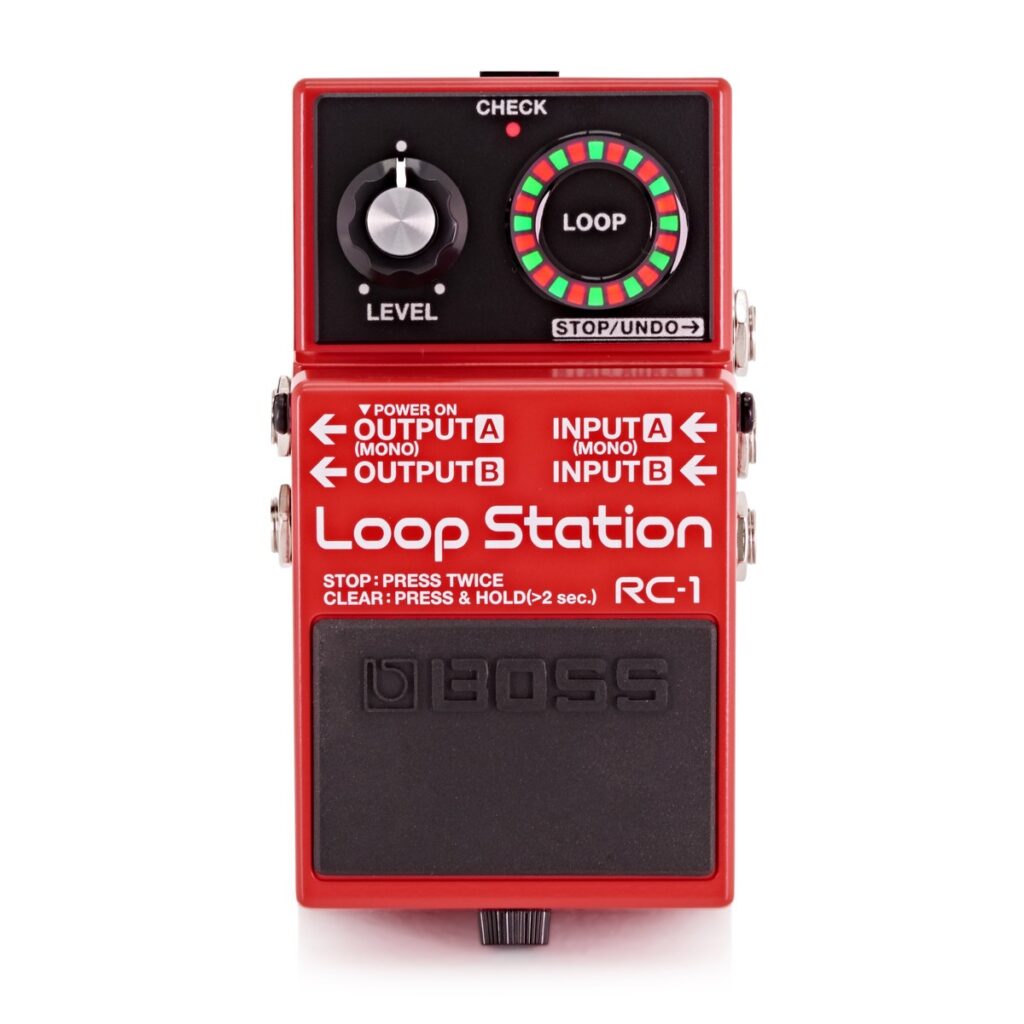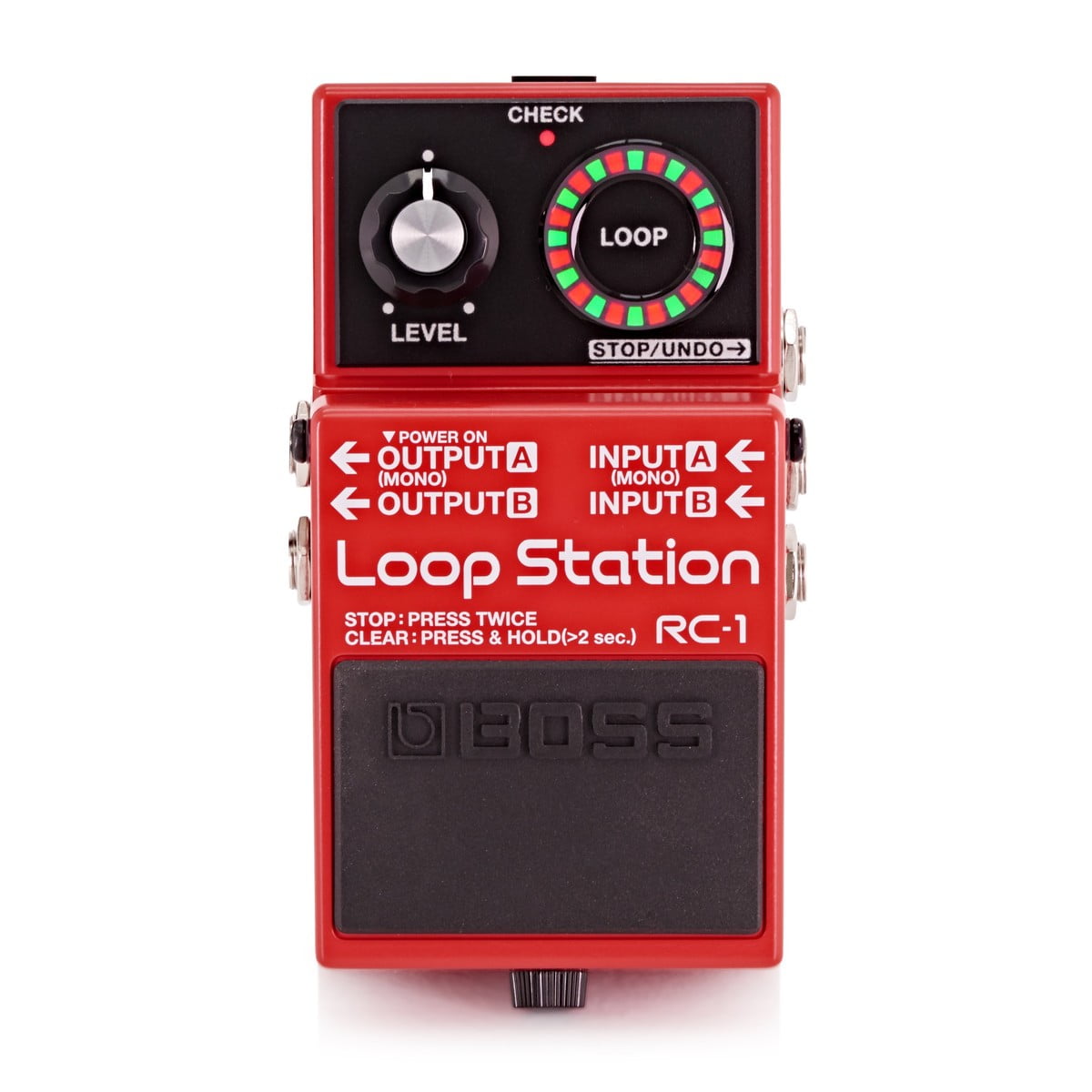
A guitar looper is a device designed to record and play back musical phrases, allowing guitarists to create layered compositions or practice and perform solo pieces with added depth. It enables a musician to record a segment of their playing (a riff, chord progression, melody, etc.) and then play it back in a loop, allowing them to layer additional parts on top of it.
How a Guitar Looper Works
A typical guitar looper consists of footswitches, knobs, and input/output jacks. Here’s a simplified breakdown of how it operates:
- Recording: To start, a guitarist plays a musical passage into the looper by pressing a footswitch to begin recording. This recorded segment repeats in a loop until instructed otherwise.
- Playback: Once the initial segment is recorded, the looper plays it back continuously, providing a foundation over which the guitarist can add more layers.
- Layering: The guitarist can overdub additional parts by playing along with the recorded loop. Each subsequent layer is added on top, allowing for the creation of intricate compositions by building up multiple musical elements.
- Control: Most loopers offer controls for functions like stopping, clearing the loop, undoing the last layer, adjusting volume levels of individual loops, and sometimes even tempo manipulation.
Utilisation and User Base
Musical Practice:
Guitar loopers are valuable tools for practicing. They allow a musician to play along with themselves, enabling the exploration of various melodies, harmonies, or rhythms. They’re particularly useful for solo performers honing their skills, as they create a fuller sound without the need for additional musicians.
Live Performance:
Many artists incorporate loopers into their live performances, creating complex arrangements in real-time. Ed Sheeran, Tash Sultana, and KT Tunstall are examples of musicians who skillfully incorporate loopers into their performances, building entire songs layer by layer.
Songwriting and Composition:
Songwriters use loopers to experiment with different musical ideas. They can quickly sketch out song structures, test melodies, or build up song sections to see how they fit together.
Studio Recording:
In the studio, loopers can serve as a creative tool for producers and musicians, enabling them to layer different guitar parts or experiment with textures and arrangements.
Conclusion
The versatility and creative potential of guitar loopers have made them indispensable tools for musicians across various genres and skill levels. Whether for live performances, songwriting, practice, or studio recording, these devices empower guitarists to explore, create, and express themselves in innovative and inspiring ways, unlocking new dimensions of musicality and performance.

